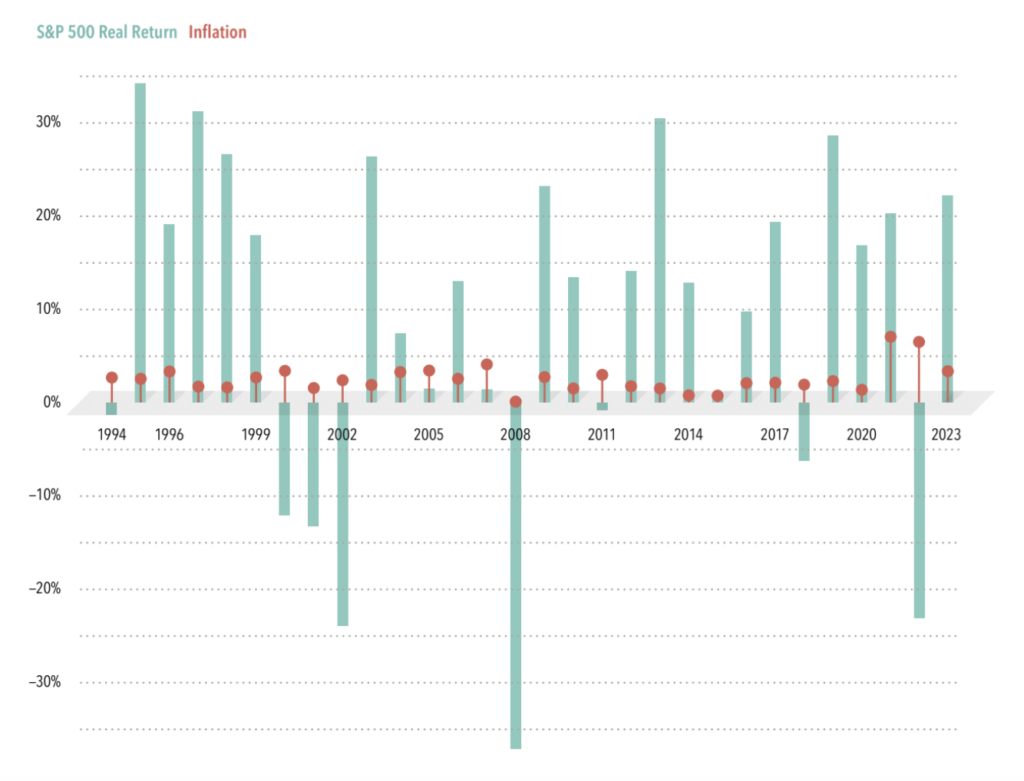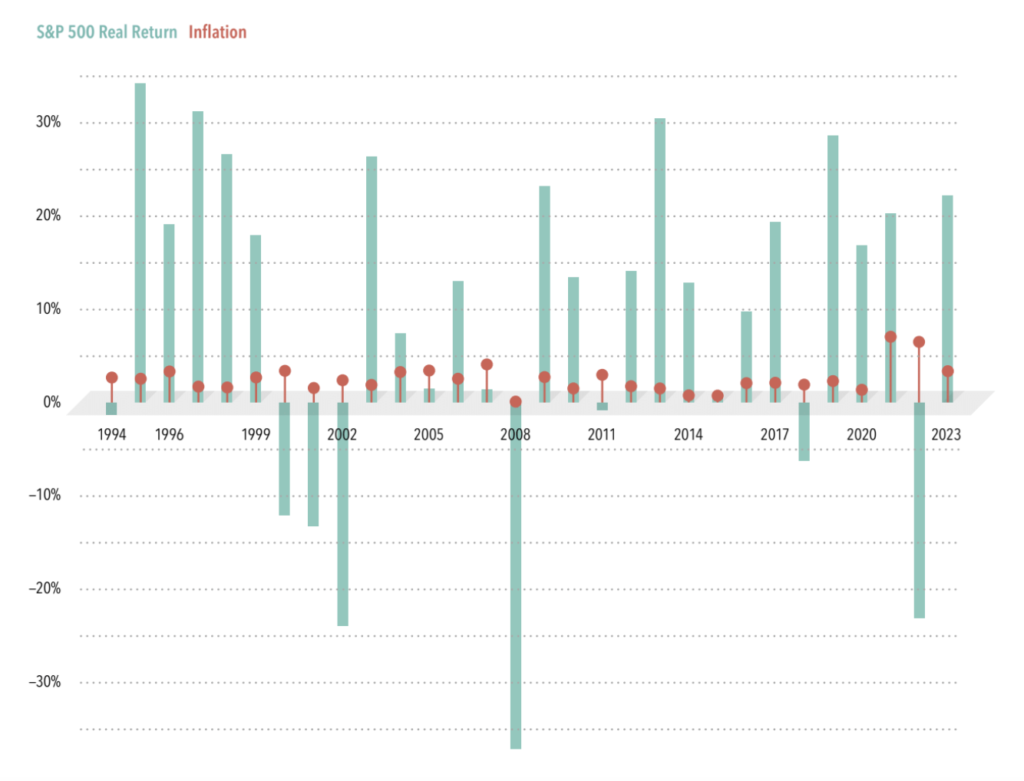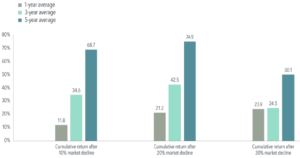With inflation consistently in the news, clients may wonder whether stock returns might suffer if inflation keeps rising. If we look at equity performance and the annual inflation rate over the last three decades in the U.S. (see chart below) the simple answer is that we’ve not seen any reliable connection between periods of high (or low) inflation and US stock returns.

What does the data tell us?
- Stock returns can be strong, or weak, or in between when inflation is high. For example, returns were relatively strong in 2021 but poor in 2022.
- Twenty-two of the past 30 years saw positive stock returns even after adjusting for the impact of inflation.
- Over the period charted, the S&P 500 posted an annualized return of 7.5% after adjusting for inflation.
In summary, history shows that stocks tend to outpace inflation over time.
So what to do if inflation rises? Stay invested and stick with your plan.
Past performance is no guarantee of future results. Short-term performance results should be considered in connection with longer-term performance results. Investing risks include loss of principal and fluctuating value. There is no guarantee an investment strategy will be successful. Indices are not available for direct investment. Their performance does not reflect the expenses associated with the management of an actual portfolio.
Source: Dimensional Fund Advisors. Chart disclosures: In USD. Real returns illustrate the effect of inflation on an investment return and are calculated using the following method: [(1 + nominal return of index over time period) / (1 + inflation rate)] – 1. S&P data © 2024 S&P Dow Jones Indices LLC, a division of S&P Global. All rights reserved. Inflation is based on the nonseasonally adjusted 12-month percentage change in the Consumer Price Index for All Urban Consumers (CPI-U). Source: US Bureau of Labor Statistics.







